The average cost of Liposuction in South Africa starts from USD 2300
Liposuction, also known as Lipoplasty or Body Contouring, is a cosmetic surgical procedure that uses a suction technique for the removal of excess body fat from specific areas like the abdomen, hips, thighs, buttocks, chest, back, arms, or neck. Other than removing the excess fat, this procedure also helps in contouring the shape of these areas.
If you have excess body fat and you are looking for options to reduce it while keeping a realistic expectation in mind then Liposuction is one procedure that you can consider. Like any other procedure, there are certain requirements that need to be met for you to be an ideal candidate for Liposuction. An ideal candidate for liposuction should be in good health and at least:
The average cost of liposuction in South Africa is $3500, the minimum price is $2350, and the maximum price is $5900.
| Country | Minimum Cost | Minimum Local Currency | Maximum Cost | Maximum Local Currency |
|---|---|---|---|---|
| India | USD 4000 | INR 332600 | USD 5000 | INR 415750 |
| Thailand | USD 3000 | THB 106950 | USD 5000 | THB 178250 |
| Turkey | USD 2637 | TRY 79479 | USD 9696 | TRY 292237 |
| United Arab Emirates | USD 4000 | AED 14680 | USD 6500 | AED 23855 |
Treatment cost
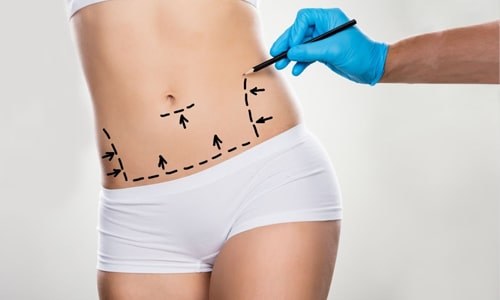
MediGence is offering immense facilities for your medical journey such as:
We offer packages at reasonable pricing that include a variety of additional advantages, making it a better deal than paying for individual perks at the hospital. The names of the technique called liposuction are also lipoplasty and body contouring. This method removes fat and contours areas of the body such as abdomen, hips, thighs, buttocks, arms or neck. As the name suggests Abdominal Liposuction does this work for the abdominal area of your body., Our attractive package which includes comprehensive benefits for all your requirements comes in collaboration with Asya Hospital in Turkey.
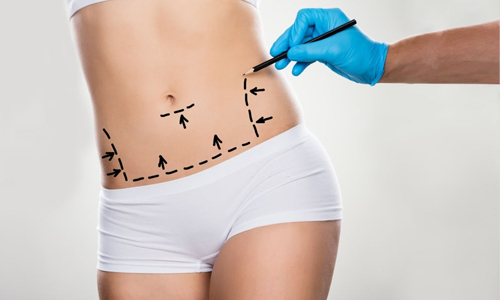
MediGence is offering immense facilities for your medical journey such as:
With us, you are sure to receive all the benefits at competitive prices which is a better choice than paying actual hospital costs. Liposuction also known as lipo is a procedure for fat removal as a cosmetic surgery procedure. Though we cannot call it a solution for weight or obesity issues. It assists in reshaping the contours of the body and makes you look slimmer and fitter. A suction technique is used to take out fat from areas such as the abdomen, thighs, hips, buttocks, arms, or neck., All generic, as well as additional benefits, are covered in the package that we bring to you in partnership with NMC Royal Hospital, DIP in the United Arab Emirates.
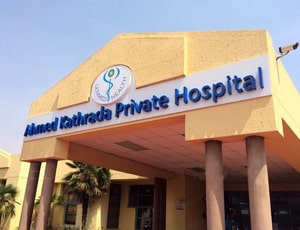
Apart from in-detail treatment procedures available, Lenmed Ahmed Kathrada Private Hospital located in Johannesburg, South Africa has a wide variety of facilities available for International Patients. Some of the facilities which are provided by them are Accommodation, Airport Transfer, Choice of Meals, Interpreter, SIM, TV inside room. Also listed below are some of the most prominent infrastructural details:
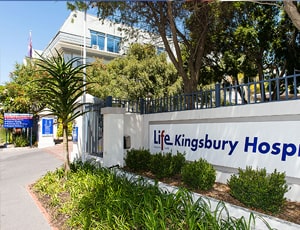
Apart from in-detail treatment procedures available, Life Kingsbury Hospital located in Cape Town, South Africa has a wide variety of facilities available for International Patients. Some of the facilities which are provided by them are Accommodation, Airport Transfer, Choice of Meals, Interpreter, SIM, TV inside room. Also listed below are some of the most prominent infrastructural details:
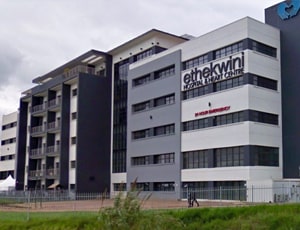
Apart from in-detail treatment procedures available, Lenmed Ethekwini Hospital and Heart Centre located in Durban, South Africa has a wide variety of facilities available for International Patients. Some of the facilities which are provided by them are Accommodation, Airport Transfer, Choice of Meals, Interpreter, SIM, TV inside room. Also listed below are some of the most prominent infrastructural details:

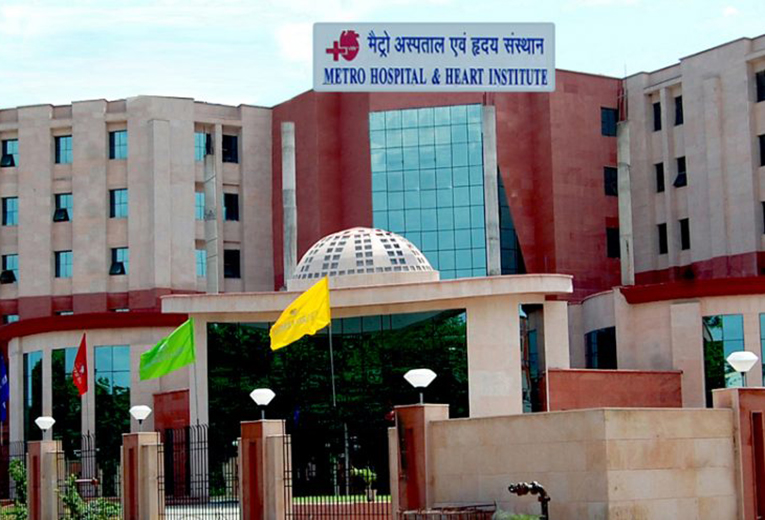
Types of Liposuction in Metro Hospital and its associated cost
| Treatment Option | Approximate Cost Range (USD) | Approximate Cost Range (INR) |
|---|---|---|
| Liposuction (Overall) | 2785 - 4238 | 227989 - 341817 |
| Tumescent Liposuction | 2168 - 3866 | 176663 - 317070 |
| Ultrasound-Assisted Liposuction (UAL) | 2936 - 3879 | 236517 - 323348 |
| Laser-Assisted Liposuction (LAL) | 2827 - 4021 | 233025 - 331591 |
| Power-Assisted Liposuction (PAL) | 2921 - 3921 | 238209 - 319681 |
| SmartLipo | 2884 - 4140 | 239717 - 347982 |
DOCTORS IN 12 SPECIALITIES
FACILITIES & AMENITIES
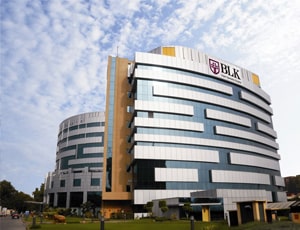
The cost for Liposuction ranges from USD 4770 - 5040 in BLK-Max Super Speciality Hospital
BLK-Max Super Speciality Hospital located in New Delhi, India is accredited by NABL. Also listed below are some of the most prominent infrastructural details:
DOCTORS IN 15 SPECIALITIES
FACILITIES & AMENITIES
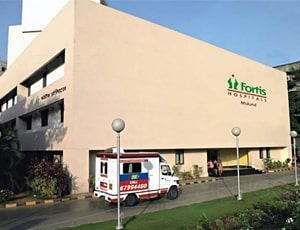
Types of Liposuction in Fortis Hospital, Mulund and its associated cost
| Treatment Option | Approximate Cost Range (USD) | Approximate Cost Range (INR) |
|---|---|---|
| Liposuction (Overall) | 3344 - 5059 | 271324 - 417651 |
| Tumescent Liposuction | 2628 - 4532 | 216473 - 370896 |
| Ultrasound-Assisted Liposuction (UAL) | 3515 - 4784 | 281544 - 385088 |
| Laser-Assisted Liposuction (LAL) | 3502 - 4979 | 281213 - 405709 |
| Power-Assisted Liposuction (PAL) | 3488 - 4801 | 287824 - 390526 |
| SmartLipo | 3469 - 5102 | 286717 - 411885 |
DOCTORS IN 13 SPECIALITIES
FACILITIES & AMENITIES
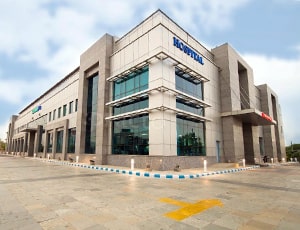
Types of Liposuction in Manipal Hospital, Gurugram and its associated cost
| Treatment Option | Approximate Cost Range (USD) | Approximate Cost Range (INR) |
|---|---|---|
| Liposuction (Overall) | 3054 - 4590 | 249744 - 374997 |
| Tumescent Liposuction | 2333 - 4164 | 191577 - 341967 |
| Ultrasound-Assisted Liposuction (UAL) | 3139 - 4248 | 259272 - 350162 |
| Laser-Assisted Liposuction (LAL) | 3096 - 4432 | 255078 - 361868 |
| Power-Assisted Liposuction (PAL) | 3131 - 4264 | 256628 - 349394 |
| SmartLipo | 3170 - 4549 | 259794 - 374876 |
DOCTORS IN 13 SPECIALITIES
FACILITIES & AMENITIES
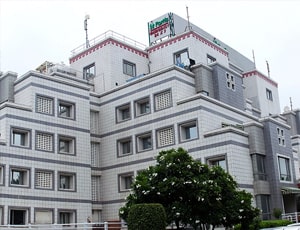
Types of Liposuction in Fortis Flt. Lt. Rajan Dhall Hospital and its associated cost
| Treatment Option | Approximate Cost Range (USD) | Approximate Cost Range (INR) |
|---|---|---|
| Liposuction (Overall) | 3035 - 4563 | 250089 - 374737 |
| Tumescent Liposuction | 2340 - 4178 | 191270 - 342331 |
| Ultrasound-Assisted Liposuction (UAL) | 3145 - 4253 | 257809 - 351033 |
| Laser-Assisted Liposuction (LAL) | 3111 - 4428 | 253546 - 361409 |
| Power-Assisted Liposuction (PAL) | 3134 - 4249 | 257390 - 349332 |
| SmartLipo | 3171 - 4551 | 258872 - 373852 |
DOCTORS IN 11 SPECIALITIES
FACILITIES & AMENITIES
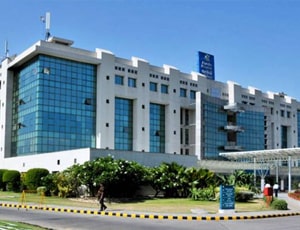
Types of Liposuction in Apollo Hospital International Limited and its associated cost
| Treatment Option | Approximate Cost Range (USD) | Approximate Cost Range (INR) |
|---|---|---|
| Liposuction (Overall) | 3050 - 4584 | 248728 - 373686 |
| Tumescent Liposuction | 2342 - 4170 | 191062 - 339578 |
| Ultrasound-Assisted Liposuction (UAL) | 3133 - 4249 | 257736 - 347905 |
| Laser-Assisted Liposuction (LAL) | 3083 - 4433 | 254842 - 362648 |
| Power-Assisted Liposuction (PAL) | 3113 - 4277 | 256722 - 349183 |
| SmartLipo | 3156 - 4571 | 258890 - 372747 |
DOCTORS IN 13 SPECIALITIES
FACILITIES & AMENITIES
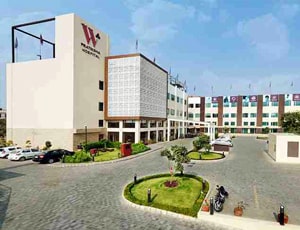
Types of Liposuction in W Pratiksha Hospital and its associated cost
| Treatment Option | Approximate Cost Range (USD) | Approximate Cost Range (INR) |
|---|---|---|
| Liposuction (Overall) | 2818 - 4254 | 228401 - 342311 |
| Tumescent Liposuction | 2143 - 3806 | 176410 - 313804 |
| Ultrasound-Assisted Liposuction (UAL) | 2931 - 3974 | 234547 - 318571 |
| Laser-Assisted Liposuction (LAL) | 2855 - 4107 | 236423 - 330471 |
| Power-Assisted Liposuction (PAL) | 2843 - 3913 | 236835 - 326089 |
| SmartLipo | 2954 - 4256 | 235993 - 344142 |
DOCTORS IN 12 SPECIALITIES
FACILITIES & AMENITIES
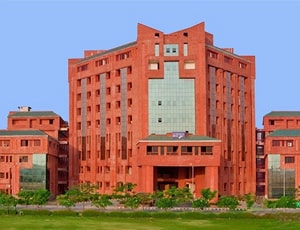
Types of Liposuction in Sharda Hospital and its associated cost
| Treatment Option | Approximate Cost Range (USD) | Approximate Cost Range (INR) |
|---|---|---|
| Liposuction (Overall) | 2837 - 4159 | 228312 - 346684 |
| Tumescent Liposuction | 2176 - 3816 | 173871 - 317356 |
| Ultrasound-Assisted Liposuction (UAL) | 2894 - 3933 | 238587 - 326389 |
| Laser-Assisted Liposuction (LAL) | 2858 - 4019 | 236160 - 328330 |
| Power-Assisted Liposuction (PAL) | 2848 - 3972 | 236962 - 322752 |
| SmartLipo | 2906 - 4267 | 242064 - 348621 |
DOCTORS IN 12 SPECIALITIES
FACILITIES & AMENITIES

Dr. Rose Private Hospital located in Budapest, Hungary is accredited by JCI. Also listed below are some of the most prominent infrastructural details:
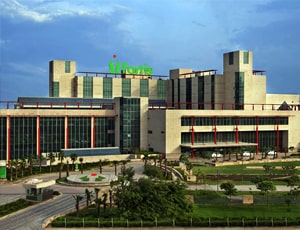
The cost for Liposuction ranges from USD 4140 - 4760 in Fortis Memorial Research Institute
Fortis Memorial Research Institute located in Gurugram, India is accredited by JCI, NABH. Also listed below are some of the most prominent infrastructural details:
DOCTORS IN 14 SPECIALITIES
FACILITIES & AMENITIES
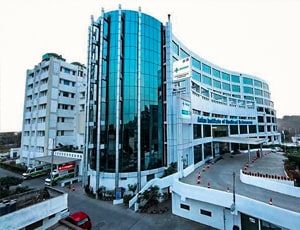
Types of Liposuction in Asian Institute of Medical Sciences and its associated cost
| Treatment Option | Approximate Cost Range (USD) | Approximate Cost Range (INR) |
|---|---|---|
| Liposuction (Overall) | 3045 - 4588 | 250405 - 372936 |
| Tumescent Liposuction | 2334 - 4177 | 191225 - 340469 |
| Ultrasound-Assisted Liposuction (UAL) | 3149 - 4267 | 258756 - 348159 |
| Laser-Assisted Liposuction (LAL) | 3101 - 4435 | 253158 - 362269 |
| Power-Assisted Liposuction (PAL) | 3121 - 4262 | 256200 - 351167 |
| SmartLipo | 3166 - 4581 | 259815 - 374104 |
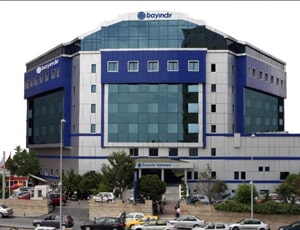
Types of Liposuction in Bayindir Healthcare Group and its associated cost
| Treatment Option | Approximate Cost Range (USD) | Approximate Cost Range (TRY) |
|---|---|---|
| Liposuction (Overall) | 3887 - 7741 | 117041 - 240326 |
| Tumescent Liposuction | 3440 - 7261 | 104755 - 217171 |
| Ultrasound-Assisted Liposuction (UAL) | 3562 - 7382 | 108118 - 225839 |
| Laser-Assisted Liposuction (LAL) | 3530 - 7191 | 108449 - 216898 |
| Power-Assisted Liposuction (PAL) | 3529 - 7441 | 106031 - 220777 |
| SmartLipo | 3833 - 7457 | 114000 - 226288 |
DOCTORS IN 11 SPECIALITIES
FACILITIES & AMENITIES
During liposuction, fat from particular body parts like the stomach, hips, thighs, buttocks, arms, or neck is removed using suction. This process also shapes and contours these areas, a technique known as body contouring or lipoplasty.
Liposuction is not considered an overall weight-loss method or an alternative to weight loss. Individuals who are overweight can achieve greater weight loss through diet and exercise or other types of surgery compared to liposuction.
Liposuction may suit those with significant body fat in certain areas but maintain a stable overall body weight.
Liposuction removes fat from areas of the body that do not respond to diet and exercise, including:
The doctor will administer local anesthesia. Additionally, you may receive medication, usually through an IV injection, to help you stay calm and relaxed. During the procedure, the surgical team will monitor your heart rate, blood pressure, and oxygen level. If Patient will experience pain while under local anesthesia, inform your surgeon so that the medication or procedure can be adjusted accordingly.
The procedure may last several hours, depending on the amount of fat being removed. If the Patient receives general anesthesia, they will wake up in a recovery room. The patient will generally spend at least a few hours in the hospital or clinic so that your medical team can monitor your recovery. If a significant amount of fluid is removed, you may need to stay overnight to ensure you are not dehydrated or experiencing shock from fluid loss.
Recovery after liposuction generally involves a few days of rest and limited activity, with swelling and bruising gradually subsiding over a few weeks. Patients are usually advised to wear compression garments to help reduce swelling and support the treated areas. Full recovery and the final results may take several months, and following post-operative care instructions is crucial for optimal healing.
Ask your healthcare adviser for the best multiple options and choose the one that meets your expectations
On an average, Liposuction in South Africa costs about $2300. While there are wide range of hospitals offering Liposuction, international patients should always seek COHSASA-Certified Hospitals in South Africa for the best results.
Liposuction cost in South Africa varies from one hospital to the other. The Liposuction package cost usually includes all the expenses related to pre and post surgery expenses of the patient. The comprehensive Liposuction package cost includes the cost of investigations, surgery, medicines and consumables. Stay outside the package duration, post-operative complications and diagnosis of a new condition may further increase the Liposuction cost in South Africa.
Many hospitals in South Africa perform Liposuction. For quick reference, the following are some of the leading hospitals for Liposuction in South Africa:
After discharge from the hospital, the patient has to stay for another 14 days in the country for complete recovery. This period is important to conduct all the follow-up tests to ensure that the surgery was successful and the patient can go back to the home country.
Apart from the cost of Liposuction, the patient is also required to pay additionally for daily meals and guest house accommodation. The extra charges may start from USD 50 per person.
Some of the best cities in South Africa which offer Liposuction are:
The average duration of stay at the hospital after Liposuction is about 1 days for proper care and monitoring. The doctors team review the patient's recovery during this time with the help of blood tests and imaging scans. Once they feel that everything is on track, the patient is discharged.
The average rating for Liposuction hospitals in South Africa is 2.9. Several parameters such as hospital infrastructure, pricing policy, quality of services, politeness of staff etc. contribute to the rating.
There are more than 3 hospitals that offer Liposuction in South Africa. These hospitals have proper infrastructure for the treatment of patients who require kidney transplant. Additionally, these hospitals are known to comply with the international standards as well as local legal requirements for the treatment of patients.